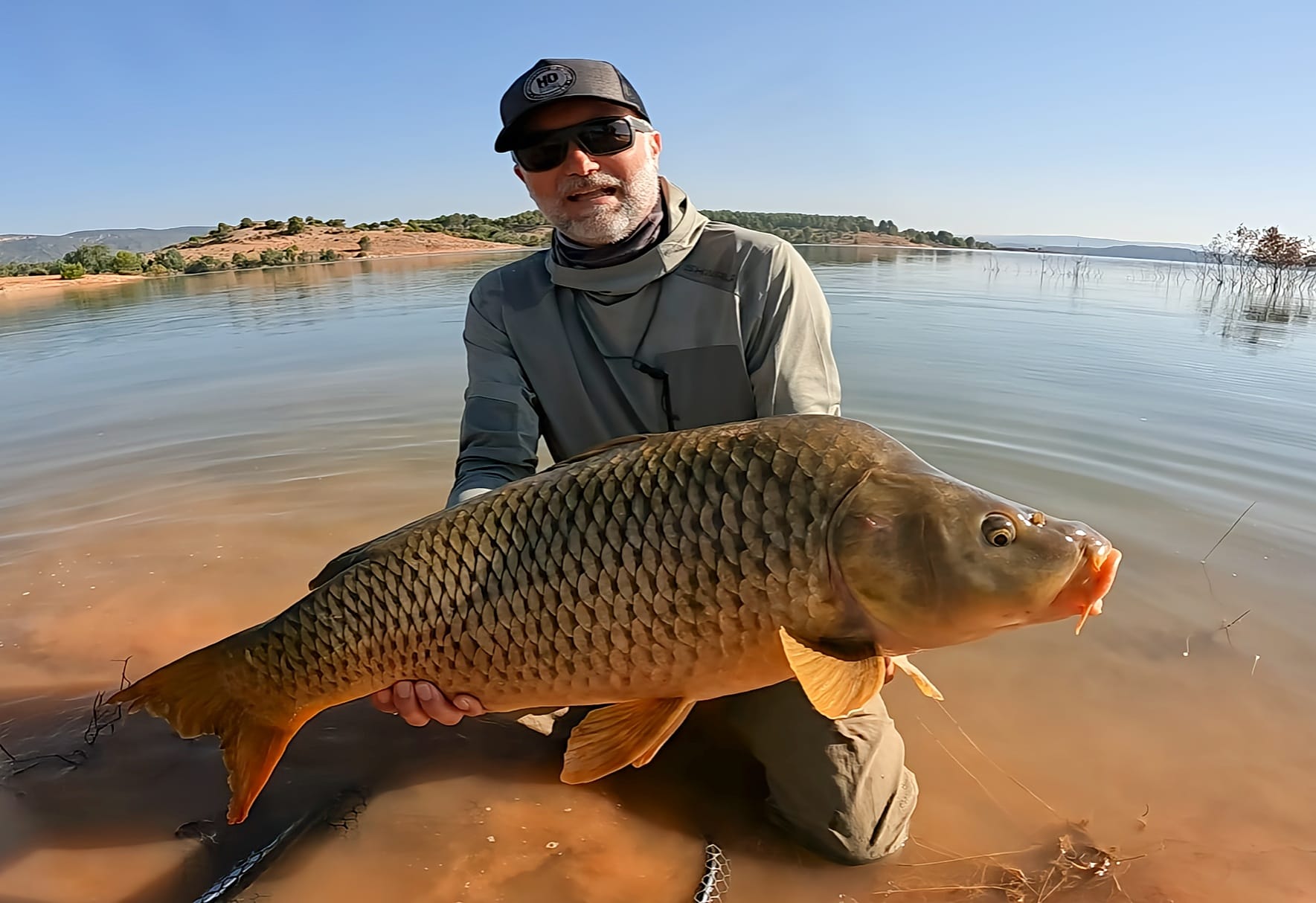The Ticino River isn’t just a blue line cutting across the Po Valley — it’s a living ecosystem, an open-air laboratory for anyone who loves current fishing. Its clear waters and ever-changing riverbed — alternating between gravel, sand, and rock — create the perfect habitat for the barbel, a fish that symbolizes strength and endurance.
In summer, when water levels drop and the current evens out, the Ticino becomes the ideal testing ground for one’s skill and patience.
July and August are months of challenge.
The days are long, the sun is fierce, and the water warms up. The barbel move into deeper areas where they find oxygen and cooler water, but they never stop feeding. This is when feeder fishing proves its worth — a thoughtful approach based on precision and consistency, turning every cast into an act of focus.
Those who know the Ticino understand: the secret isn’t to cast more, but to cast better.
The Environment and the Barbel’s Behavior
In summer, barbel move within slower currents, pausing behind rocks or in deep holes where the water stays cool. Reading the river is essential: a subtle change in color, a small variation in current, or a lighter patch of sand can conceal an entire “squad” of feeding fish.
The early morning hours and dusk are usually the most productive, when the water temperature drops and fish activity increases.
Tackle: Balance and Sensitivity
To face the Ticino in these conditions, you need a feeder rod of 3.6 to 3.9 meters, with a casting power between 80 and 120 grams (up to 150 g if needed). You need power to handle weights and feeders in current, but also sensitivity to detect the nervous bites of barbel that aren’t feeding decisively.
A size 4000 reel spooled with strong nylon (0.25–0.28 mm), a running rig or helicopter setup, and long hooklengths (60–100 cm) in 0.18–0.22 mm fluorocarbon — natural presentation is everything. In clear water, every detail matters.
Groundbaiting and Maggots: The Heart of the Action
Maggots — live or glued — are the key element of summer fishing. Glueing them keeps the feed tight on the bottom and resists the current, holding the fish in the swim without dispersing the bait.
The golden rule remains the same: a little, but often.
A steady rhythm of casts creates a dense carpet of maggots that stimulates curiosity and keeps fish feeding for longer.
When the current is stronger, alternating cage and open-end feeders helps control bait descent; in slower water, lighten things up with sweet groundbaits or a pinch of micro pellets.
A small trick for quiet moments? Add a few “tired” or crushed maggots to the feeder — they sink more slowly, creating an irresistible trail down to the bottom.
The Fight: Strength and Respect
Anyone who’s hooked a Ticino barbel knows it — the first run is brutal, the fight epic. The initial headshakes are violent, and the fish immediately seeks the current, using every meter of water to its advantage.
In such moments, patience matters more than force. Don’t rush it: play the fish, control the drag, and wait until it tires before bringing it safely to the net.
Using a wet unhooking mat and a large net is essential — not only for ethics, but to preserve the beauty of such a worthy opponent. Every mindful release is a tribute to the river, to the life within it, and to the future of sport fishing.
The Modern Angler’s Mindset and Philosophy
Barbel fishing on the Ticino isn’t just about technique — it’s about discipline. It’s the art of observing, of learning to read the signs of the water, of knowing when to wait and when to act. It’s a school of focus and respect, where every mistake becomes a lesson.
Many anglers live it like a ritual: preparing the bait, setting up the rods, sitting in silence and listening to the river. That’s where the truest part of this sport lies — uniting generations under the same spirit of patience, respect, and passion.
In this sense, the Ticino is a strict but generous teacher. It doesn’t forgive distraction, but rewards humility with genuine emotion.
An Invitation to Live Fishing
Fishing is never just about catching. It’s about sharing, searching, and discovering.
For those wishing to explore the world of feeder fishing or discover new Italian-made innovations, the Pescare Show in Rimini is a unique opportunity — three days where technique meets passion, craftsmanship meets innovation, and people truly connect, face to face.
Because, in the end, the barbel and the Ticino teach the same lesson: true strength lies not in force, but in consistency. And every catch, every release, every day by the river brings us one step closer to that peace that only water can teach.
















